Campaign observers will not be surpsied to hear that the ripple effect spurred by Shashi Tharoor’s nomination may soon be lapping against the shores of Bangladesh. In the past week, two op/eds in the country’s Daily Star ask why, given Bangladesh’s “excellent record of service to the UN” in leadership posts and peacekeeping efforts, the government has not yet nominated a candidate.
Dr. Abdul Hannan, a former press counselor at the Bangladeshi mission in New York, points out that Bangladesh “has never taken a back seat at the UN” and “has earned international acclaim as the top troops contributing country in the UN peace keeping…”
In the background of such impressive performance internationally it is only appropriate and legitimate for Bangladesh to have aspiration for the post of UNSG which potentially is within our reach. What is needed is to grasp the opportunity by making an intelligent decision in the selection of the right candidate soon.
Following on Dr. Hannan’s article this week, Talukder Maniruzzaman, a National Professor of Bangladesh, writes that
It is sheer lack of vision on the part of our foreign ministry that they did not even think of nominating a candidate for the post of Secretary General of the United Nations to be selected/elected by September/October this year. This is surprising given the back drop of the fact that there are excellent prospects of a Bangladeshi nominee being selected as the Secretary General of the UN.
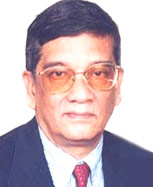
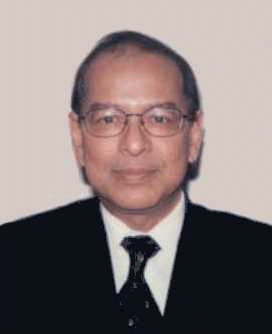 Dr. Hannan recommends the country’s former UN Ambassador Reaz Rahman or its present representative Dr. Iftekhar Ahmed Choudhury as possible nominees. Prof. Maniruzzaman adds another name to the list, that of Dr. Kamal Hossain.
Dr. Hannan recommends the country’s former UN Ambassador Reaz Rahman or its present representative Dr. Iftekhar Ahmed Choudhury as possible nominees. Prof. Maniruzzaman adds another name to the list, that of Dr. Kamal Hossain.
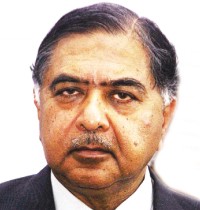 He is the author of the Constitution of our country. He is an internationally known jurist. In 1989-90 I was a fellow at Stockholm International Peace Research Institute (SIPRI). Several judges of the International Court of Justice, which is an organization of the UN, gave lectures at SIPRI at that time. To my great pride some of them were full of praise for the legal acumen of Dr. Kamal Hossain… I feel that some might argue that Dr. Kamal Hossain is one of our few sober, foresighted, honest, and visionary political leaders.
He is the author of the Constitution of our country. He is an internationally known jurist. In 1989-90 I was a fellow at Stockholm International Peace Research Institute (SIPRI). Several judges of the International Court of Justice, which is an organization of the UN, gave lectures at SIPRI at that time. To my great pride some of them were full of praise for the legal acumen of Dr. Kamal Hossain… I feel that some might argue that Dr. Kamal Hossain is one of our few sober, foresighted, honest, and visionary political leaders.
But Prof. Maniruzzaman worries that Dr. Kamal Hossain may be passed over, considering “charismatic political leaders like Anthony Eden and Charles De Gaulle” are usually rejected as unpalatable to some governments. Accepting that, Maniruzzaman offers Mustafa Kamal, the former chief justice of Bangladesh, who also had the distinct experience of serving on both the Pakistani and, later, Bangladeshi delegations to the UN.
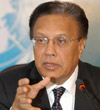 Both agree however (and others have shared the view) that Anwarul Karim Chowdhury would make the most promising Bangladeshi candidate. Chowdhury’s experience includes 25 years continuous service at the UN, in the General Assembly sessions and as the country’s representative on the Security Council. Presently, Chowdhury holds the senior most post at the UN for a Bangladeshi national, Under Secretary General for Least Developed Countries, Landlocked Developing Countries and Small Island Developing States (not to mention the longest title at the United Nations).
Both agree however (and others have shared the view) that Anwarul Karim Chowdhury would make the most promising Bangladeshi candidate. Chowdhury’s experience includes 25 years continuous service at the UN, in the General Assembly sessions and as the country’s representative on the Security Council. Presently, Chowdhury holds the senior most post at the UN for a Bangladeshi national, Under Secretary General for Least Developed Countries, Landlocked Developing Countries and Small Island Developing States (not to mention the longest title at the United Nations).
Surprisingly, neither author considered that a Bangladeshi candidate could bank on the country’s status as a small country without compelling interests in global power politics – a highly attractive criteria the candidate would share with almost all previous Secretaries General.
Both authors do insist that getting a Bangladeshi into the race is a nationalist imperative. Dr. Hannan begs those in power to “Let not our posterity blame us for a missed opportunity to feel proud” while Dr. Maniruzzaman portends that “The next generation of Bangladeshis will not forgive this generation of Bangladesh leaders if they do not try for the post.”
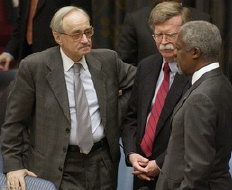 With the Security Council expected to move forward in July on the selection of the next UNSG, all eyes will be on France as it assumes the Council presidency next week. And they are not wasting any time.
With the Security Council expected to move forward in July on the selection of the next UNSG, all eyes will be on France as it assumes the Council presidency next week. And they are not wasting any time.

 Dr. Hannan recommends the country’s former UN Ambassador Reaz Rahman or its present representative Dr. Iftekhar Ahmed Choudhury as possible nominees. Prof. Maniruzzaman adds another name to the list, that of Dr. Kamal Hossain.
Dr. Hannan recommends the country’s former UN Ambassador Reaz Rahman or its present representative Dr. Iftekhar Ahmed Choudhury as possible nominees. Prof. Maniruzzaman adds another name to the list, that of Dr. Kamal Hossain. He is the author of the Constitution of our country. He is an internationally known jurist. In 1989-90 I was a fellow at Stockholm International Peace Research Institute (SIPRI). Several judges of the International Court of Justice, which is an organization of the UN, gave lectures at SIPRI at that time. To my great pride some of them were full of praise for the legal acumen of Dr. Kamal Hossain… I feel that some might argue that Dr. Kamal Hossain is one of our few sober, foresighted, honest, and visionary political leaders.
He is the author of the Constitution of our country. He is an internationally known jurist. In 1989-90 I was a fellow at Stockholm International Peace Research Institute (SIPRI). Several judges of the International Court of Justice, which is an organization of the UN, gave lectures at SIPRI at that time. To my great pride some of them were full of praise for the legal acumen of Dr. Kamal Hossain… I feel that some might argue that Dr. Kamal Hossain is one of our few sober, foresighted, honest, and visionary political leaders. Both agree however (and others have shared the view) that Anwarul Karim Chowdhury would make the most promising Bangladeshi candidate. Chowdhury’s experience includes 25 years continuous service at the UN, in the General Assembly sessions and as the country’s representative on the Security Council. Presently, Chowdhury holds the senior most post at the UN for a Bangladeshi national, Under Secretary General for Least Developed Countries, Landlocked Developing Countries and Small Island Developing States (not to mention the longest title at the United Nations).
Both agree however (and others have shared the view) that Anwarul Karim Chowdhury would make the most promising Bangladeshi candidate. Chowdhury’s experience includes 25 years continuous service at the UN, in the General Assembly sessions and as the country’s representative on the Security Council. Presently, Chowdhury holds the senior most post at the UN for a Bangladeshi national, Under Secretary General for Least Developed Countries, Landlocked Developing Countries and Small Island Developing States (not to mention the longest title at the United Nations). With signs that Pakistan is now willing to back a non-Pakistani for UNSG, attention is turning to whether Singapore Prime Minister Goh Chok Tong will enter the race. He has often been mentioned as a likely late entry. He is
With signs that Pakistan is now willing to back a non-Pakistani for UNSG, attention is turning to whether Singapore Prime Minister Goh Chok Tong will enter the race. He has often been mentioned as a likely late entry. He is 




